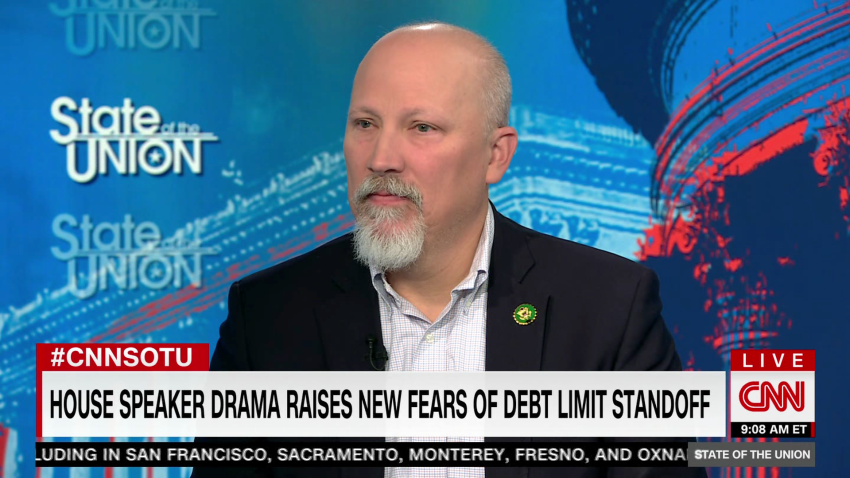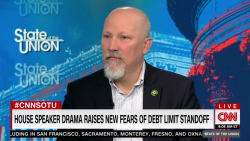There is a growing sense in Washington and on Wall Street that chaos won’t just be the opening act of the 118th Congress. It might be the whole play.
The historic dysfunction surrounding the election of House Speaker Kevin McCarthy is raising concern of a debt ceiling crisis this summer or fall that threatens the world economy.
Not only does McCarthy lead a slim GOP majority that will be almost impossible to corral, but the concessions he agreed to in order to get the gavel will give extremists considerable influence in tough negotiations.
“The debt limit is going to be a problem,” economists at Goldman Sachs plainly warned clients in a report on Monday. “Fiscal deadlines will pose a greater risk this year than they have for a decade.”
Failure to raise the $31 trillion debt limit would risk a default on US debt, an unthinkable event previously likened to “financial Armageddon.” Even a near-default would cause mayhem on Wall Street and risk delaying paychecks to federal workers, military salaries and other payments millions of Americans rely on.
Citing the McCarthy vote and recent rule changes, Goldman Sachs said it will likely be a “close call” that the debt ceiling is raised on time.
A senior Washington lobbyist told CNN on Friday there is a real risk of a repeat of the 2011 debt ceiling crisis or “potentially worse.” That episode from a dozen years ago freaked out investors and prompted the loss of America’s perfect AAA credit rating from S&P.
“Even before this week, there was a growing concern about how things like the debt limit and funding the government would be processed. This week has increased that level of anxiety,” the senior lobbyist said on the condition of anonymity to speak candidly.
When will the debt ceiling become a problem?
Weeks before the messy McCarthy vote, Goldman Sachs similarly cautioned that the next debt ceiling fight could be the riskiest since 2011.
Congress has some time to figure out how to address the debt limit before it becomes a crisis.
Goldman Sachs estimates the debt ceiling won’t limit the Treasury Department’s ability to finance the deficit until August at the earliest and the deadline could come as late as October. The precise deadline depends on the size of the budget deficit before then.
Warnings of debt ceiling trouble are nothing new. Investors may be quick to dismiss this threat as a political sideshow.
Recall that after months of fighting, Congress eventually raised the debt limit in 2021 to stave off economic disaster.
‘In prior fights, neither side wanted to default’
But some fear this fight may be tougher than those in the past, a concern reinforced by the fact it took 15 ballots to elect McCarthy in what is normally the easiest vote taken by a new Congress.
Jaret Seiberg of Cowen Washington Research Group notes that one major problem this year is that some Freedom Caucus members don’t appear to view a debt default as a negative because it would force government to slash spending.
“We appreciate that the market has become numb to warnings of debt ceiling defaults because both parties have crept up to the brink without a material default,” Seiberg wrote in a note to clients on Monday. “This time is different. In prior fights, neither side wanted to default.”
Seiberg emphasized a debt default is not “inevitable,” but urged investors to heed the warning signs.
“We believe this needs to be on the market’s radar now before there is a crisis,” he wrote.
Pressure on McCarthy
Another issue is that proposed rule changes McCarthy agreed to would allow a single Republican to call for a vote on the speaker by making a motion to “vacate the chair.”
That could significantly complicate debt ceiling negotiations in the House.
“The real danger is what happens if there is a debt limit deal that comes back from the Senate and someone moves to vacate the chair?” the senior Washington lobbyist told CNN. “If a motion to vacate is successful, then presumably you’re right back to where you are today and have to elect a speaker.”
In other words, the drama of electing a new speaker would be combined with the stakes of avoiding a debt default. What could go wrong?
























